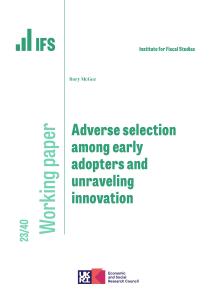This is the main finding in new research – funded by the Nuffield Foundation and the Economic and Social Research Council – by IFS researchers published today.
Using data on millions of food and non-alcoholic drink purchases from stores, takeaways and restaurants, the analysis shows that:
By May 2020, total calories were 15% above normal levels. During the second half of 2020, they were still, on average, 10% higher than usual. A large and sustained increase in at-home calories more than offset reductions in calories eaten out.
There was a large increase in calories from takeaways, which peaked at more than double usual levels in the UK’s second national lockdown in November 2020. Calories purchased from supermarkets and grocery stores were also more than 10% above normal levels throughout the pandemic. Together, these more than offset reductions in calories from dine-in restaurants.
Overall, people increased their calories from raw ingredients by more than those from ready-to-eat meals and snacks & treats. The pandemic therefore led to a shift in the balance of calories towards foods that required home preparation.
90% of households increased their total calories, relative to normal, with the largest increases for the wealthiest households and the smallest for retired ones. Households living in London and those with a relatively young working-age household head also had larger increases in calories. These traits are associated with a higher probability of working from home, which points towards changes in working patterns being a factor in more calorific diets.
Kate Smith, Associate Director at IFS and an author of the research, said:
‘The huge changes in where people work, eat and socialise over the past year have led to a significant rise in calorie intake. Increases in food consumed at home more than offset drops in calories from eating out. 90% of households increased their calorie intake, with the largest rises for the wealthiest households.’
Martin O’Connell, Deputy Research Director at IFS and an author of the research, said:
‘An important question for policymakers is whether higher calorie consumption persists as we emerge from the pandemic. Our findings point towards increased home working as a factor in driving higher calorie consumption. This could exacerbate the challenge of improving population diet and reducing obesity levels.’
Mark Franks, Director of Welfare at the Nuffield Foundation, one of the funders of the research, said:
‘We know that the pandemic has had major impacts on both physical and mental health, spread unequally across society. Through important new analysis of changes to people’s diets, this report adds to that evidence base. The rise in calorie consumption reinforces the need to address some of the systemic issues behind food inequality, such as the cost of a healthy diet relative to a less healthy one, that can also contribute to obesity. It also should not distract from the significant minority who have struggled to access food throughout the pandemic, as evidenced by increased use of food banks and concerns over lack of access to free school meals.’











